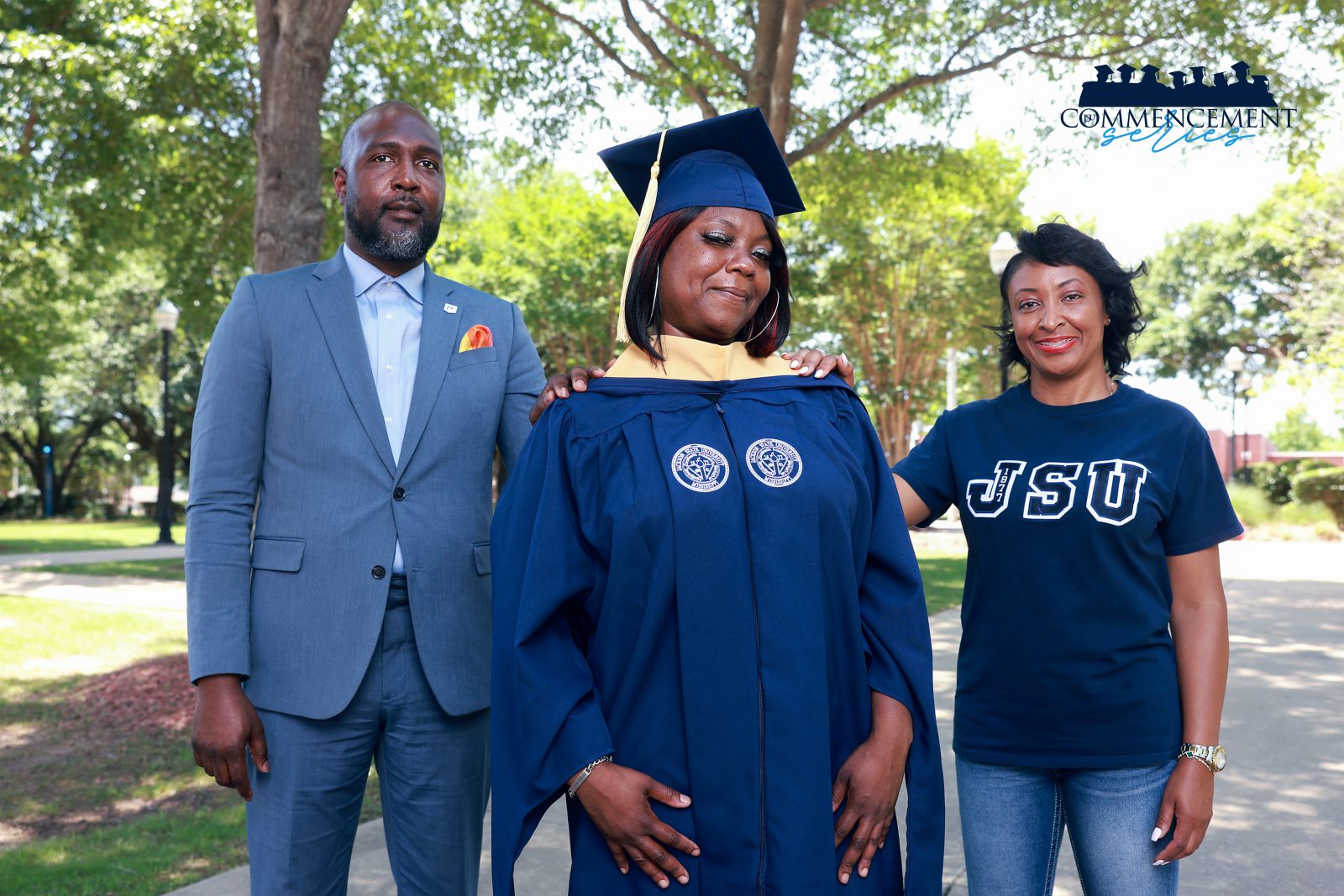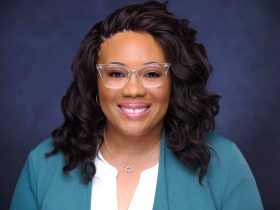by Aron Smith
In December 2023, Mississippi became the state of the largest kidney donor swap, uniting seven benevolent donors with recipients in a life-saving dance of generosity and hope. Among them was Erica Griffin, a master’s student at Jackson State University, who, fueled by faith, received a life-changing second chance.
“I can do all things through Christ who strengthens me,” Griffin cites Philippians 4:13 with confidence.
As a kidney transplant survivor, Griffin is set to receive her master’s degree in social work on Friday, May 3, in the Lee E. Williams Athletics & Assembly Center.
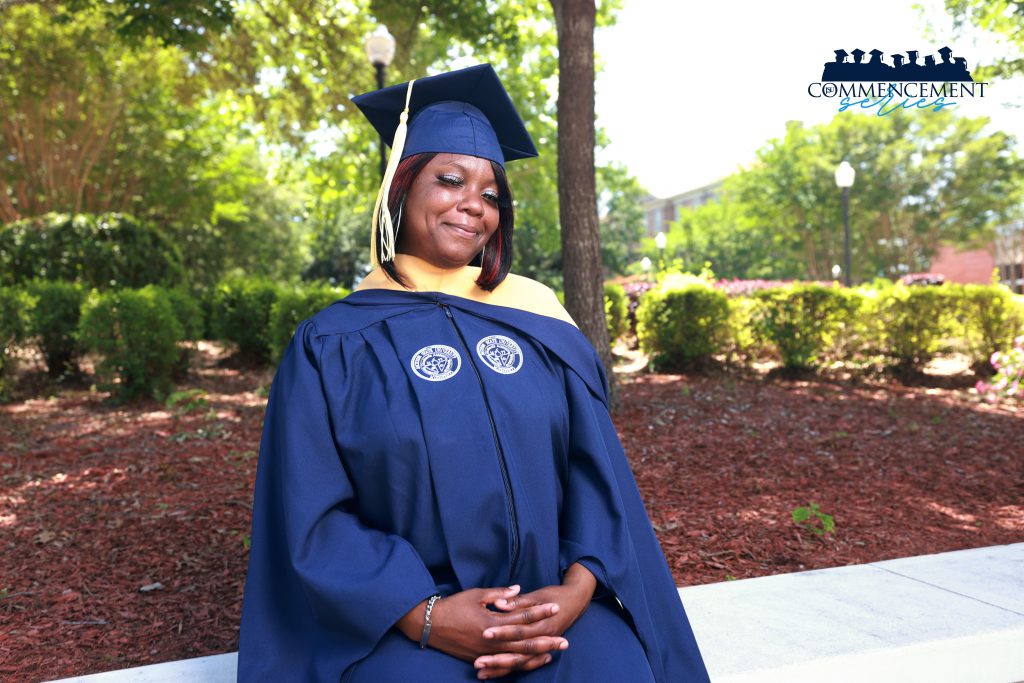
“When I discovered my kidney disease, I was devastated at first, but I have always had a strong faith and trust in God,” she shared. “It was a completely new experience for me. I had no idea how long I would have to endure it.”
A Jackson native, Griffin, 37, battled hypertension for nearly 15 years when her health took a drastic turn in 2019, and she received devastating news during a hospital visit.
“I had just been accepted into the Jackson State School of Social Work graduate program when they told me my kidneys were severely damaged due to high blood pressure,” she explained.
Griffin learned that she had end-stage kidney disease and would need a transplant, and at 32 years old, she began a demanding and life-changing dialysis treatment.
Disparities and Delays: The Dual Challenges in Kidney Transplantation
According to a study conducted by the National Library of Medicine, end-stage kidney disease (ESKD) is primarily caused by diabetes and hypertension. The study also found that obesity contributes significantly to the development of multiple chronic conditions.
African Americans have a higher prevalence of these risk factors than white populations, with 76.3% of African Americans suffering from obesity/overweight, 18% having diabetes, and 43.3% having hypertension.
Currently, over 95,000 people in the U.S. are on the waiting list for a kidney from a deceased donor, according to the United Network for Organ Sharing (UNOS). These individuals typically face a wait of three to five years, during which they must undergo dialysis treatments three times a week to manage their failing kidney function.
Although receiving a kidney from a living donor can significantly reduce the wait time, the challenge is that the number of volunteers for kidney donations must match the demand.
For individuals like Griffin, seeking a kidney transplant presented two options: a transplant from a deceased donor or a living donor.
Placing Her Faith in God’s Hands
Despite her health challenges, Griffin remained determined to achieve her educational goals, balancing her treatments and academics. For three and a half years, she tackled assignments while undergoing three four-hour hemodialysis sessions per week, often grappling with exhaustion during post-treatment as she dedicated her time to healing.
“After getting off the dialysis machine, I used to be so drained. I’d come home, lay down, and it seemed like my body wouldn’t get right until the next day,” Griffin shared.” Some days, I feel like giving up. I ask the Lord to help me finish and give me the strength I need to continue.”
While at JSU, she secured two internships, which were crucial for meeting her program’s requirements. Unfortunately, she was unable to complete them due to her health needs, prompting Griffin to seek assistance.
Arron Richardson, Ph.D., assistant director for Disability Services at JSU, stepped in to provide critical support. Griffin said he was instrumental in devising a plan that accommodated her medical needs under the Americans with Disabilities Act (ADA) and ensured she completed the necessary internship hours to graduate.
“We have a background in working with students and understanding their needs. We are well-versed in the competencies of social work. When Erica didn’t feel well due to dialysis, we were able to accommodate her with virtual options and maintained an open line of communication with her,” he explained.
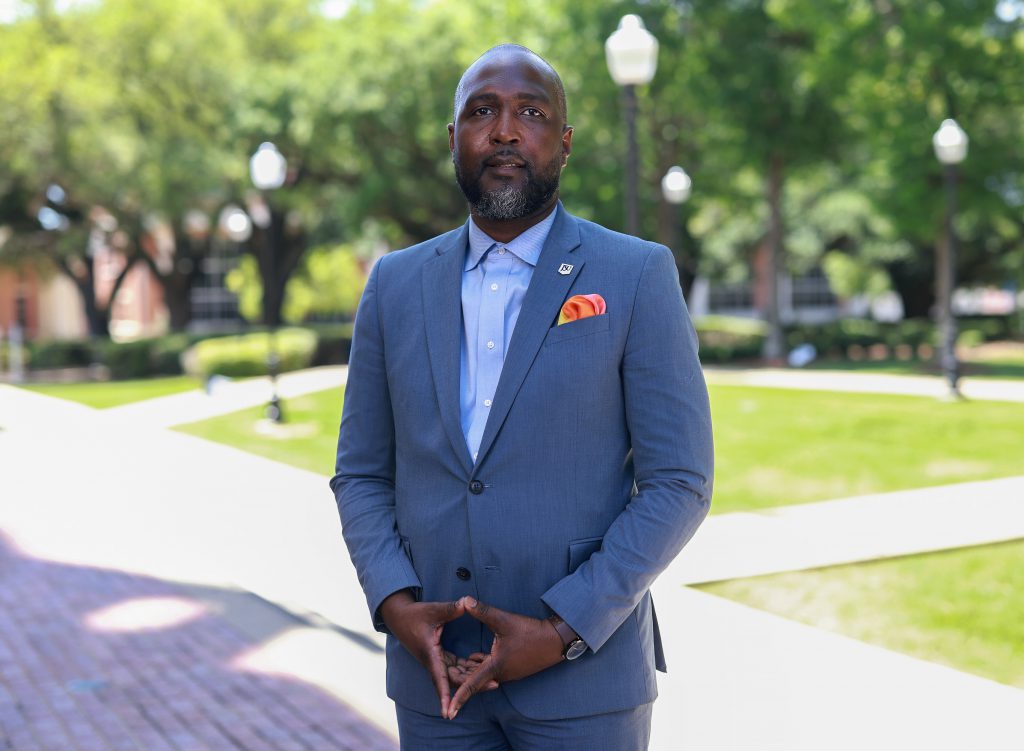
Griffin said she sincerely appreciated Richardson’s guidance and support, calling him essential to her support system. “He would offer wise counsel, reassuring me that everything would be okay,” she said.
Richardson stressed the importance of helping students understand that they do not have to give up their dreams due to a disability.
“There’s a disability service office at every college campus in Mississippi here to modify the academic setting as needed, with the proper documentation,” he explained.
Amidst hospital treatments, Griffin was able to remain vigilant in her studies, completing her assignments and courses to reach the apex of academic achievement—commencement.
She credits her resilience to her network, faith and mother, whom she describes as her rock.
“My mom’s advice has always stayed with me. Her words to never give up, to keep a strong positive mentality, and to put my trust in God have kept me going through my most challenging times,” Griffin said.
A Miracle Angel
Griffin said she earnestly asked God to send someone who would offer her the life-saving gift of a kidney.
“I prayed every night, asking God to touch a living donor’s heart and to walk into [the University of Mississippi Medical Center] UMMC willing to donate a kidney to me. I said this prayer until the night before Thanksgiving,” she said.
On Thanksgiving morning, she received a transformative phone call. The hospital found a donor, former JSU student Petrina Redmond.
Redmond had tried to donate her kidney to her son Brysun, but she was not a match. However, she was determined to give someone the gift of life. Redmond and Griffin became part of a historic seven-way kidney transplant swap, which eventually led to a kidney match for Brysun.
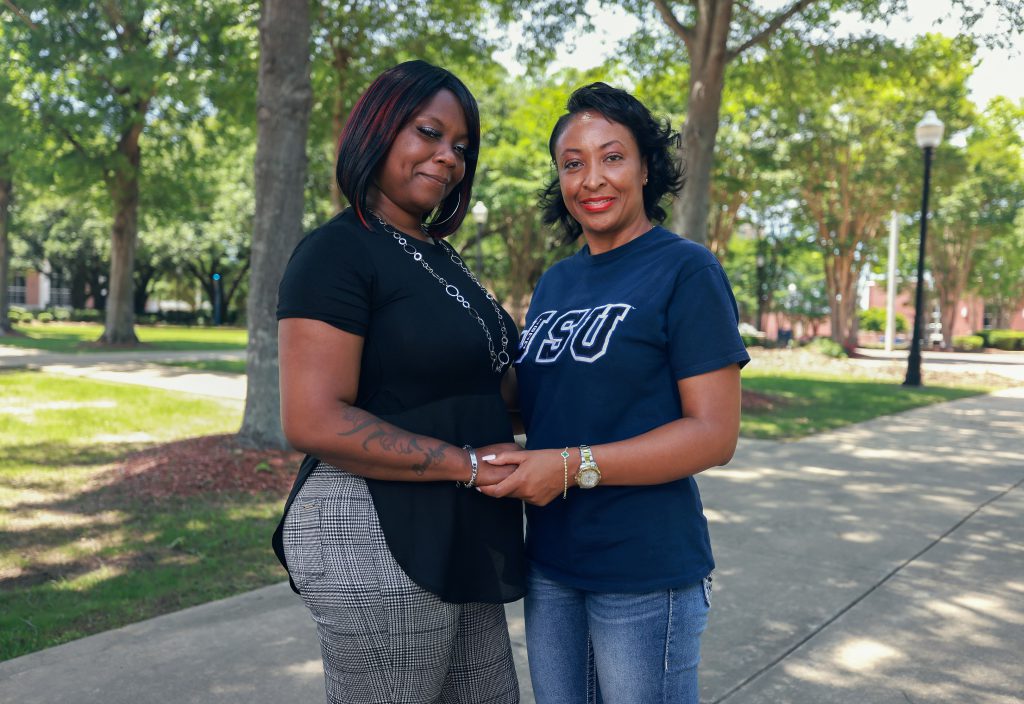
In 2003, Redmond’s son was born premature and diagnosed with posterior urethral valves (PUV), a rare congenital condition affecting 1 of 8000 male infants, and required medical attention. In order to care for her son, Redmond withdrew from Jackson State.
“We always knew that he’d need a kidney. I always knew that I wanted to give it to him. But I didn’t know the ins and outs of it,” she explained.
Redmond had waited four years to donate her kidney to Brysun but refused to be discouraged by their incompatibility. “I reassured my son, ‘This wasn’t the moment for your blessing. Everything is in God’s timing,'” she said. “I recognized it as Erica’s time for blessings.”
On December 14, 2023, Griffin became the final patient to undergo a life-changing kidney transplant surgery at the UMMC hospital, marking a turning point in her life. Heralded as a remarkable success, the procedure not only transformed her life but left her doctor in awe, who described her new kidney as one of the most beautiful they had ever seen.
The Gift of a Second Chance
It’s been more than four months since her surgery, and Griffin said she is grateful and attributes her recovery to divine intervention.
“One thing about God: He’s amazing. He does answer prayers; you have to be patient. It’s not on our time—it’s on His. He knows when to give us the gift,” Griffin remarked.
While on dialysis, Griffin’s kidney function was critically impaired, with her creatinine levels peaking at 14, far above average. Following her kidney transplant, her levels have stabilized to a healthy 1.3.
Not only did her health improve, it also propelled her career aspirations.
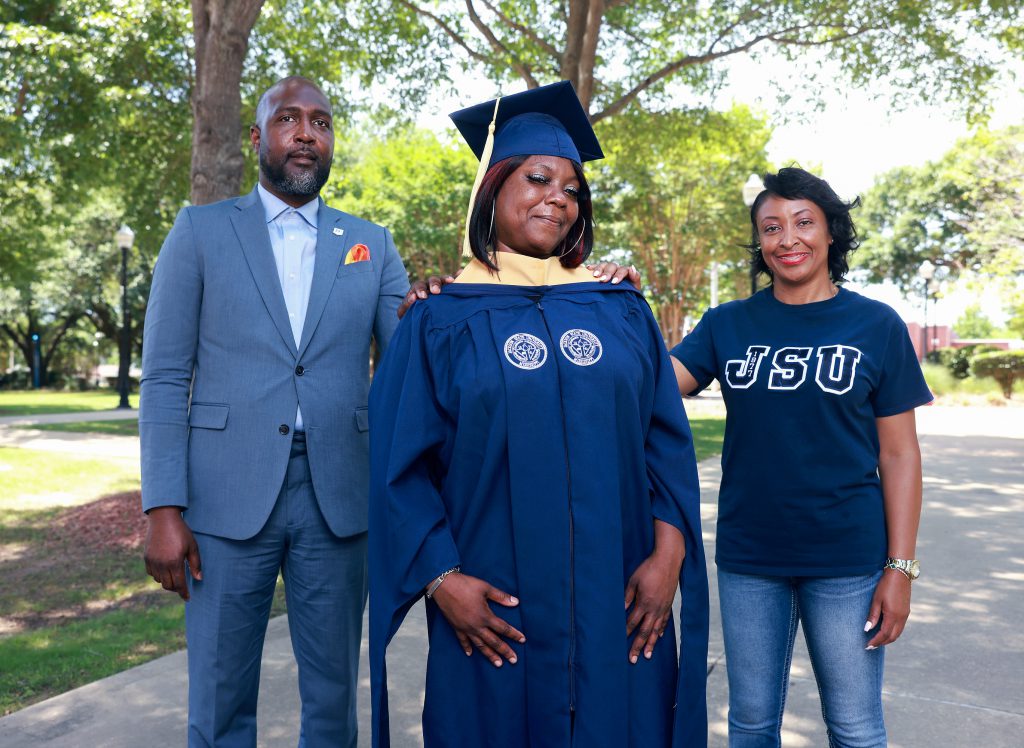
Originally aspiring to work in foster care, Griffin is now committed to becoming a dialysis social worker, aiming to provide comfort and guidance to others facing similar health struggles.
Since the transplant, Griffin and Redmond have maintained a close connection. Redmond’s son will receive his new kidney this summer.
As Griffin prepared for commencement, she thanked her family, pastor, Redmond, Richardson, and Jackson State University for their unwavering support in helping her achieve her academic goals.
“To anyone going through sickness or any other difficulties, I always advise keeping a strong and positive mind,” Griffin said. “Keep your trust and faith in God. He will help you through it no matter what and never leave your side.”



